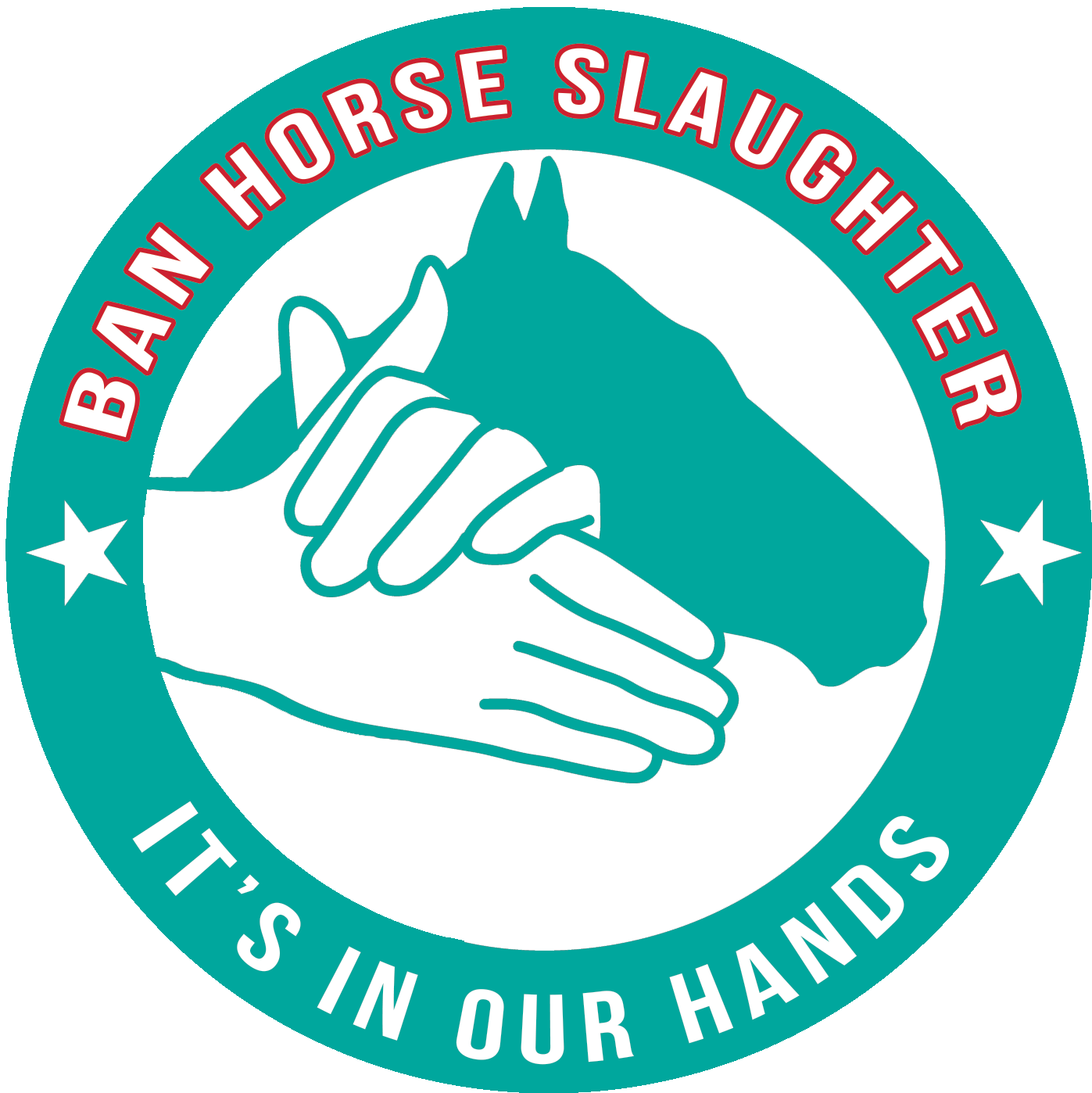THERE OUGHT TO BE A LAW!
The Majority of Americans Support a Ban on Horse Slaughter, Why Can’t You Get Congress to Pass the Bill?
You’d think it would be simple; Americans don’t eat horses and poll after poll shows that the public overwhelmingly supports a ban on horse slaughter. Still, nearly two decades after the introduction of the original bill to ban horse slaughter a federal law to end this abhorrent trade has yet to be passed. Why is that?
Firstly, Congress is not a fast-moving machine (see chart below), and our forefathers put checks and balances in place so that sweeping legislation (even good legislation) cannot be passed without sustained scrutiny. The fact is that the legislative process is tough, and it is hard to pass a bill into law. Every session of Congress sees the introduction of thousands of bills so there is stiff completion for the time and attention of our lawmakers. And the process to turn a bill into law is arduous. Passing legislation is nothing like the old Schoolhouse Rock video “I’m Just a Bill” and it isn’t something you can learn about by reading the current Wikipedia page. Passing legislation is complex and has many levels and hurdles it must clear to become a law. Below is a quick overview of the general path our bill takes to become a law. Since Congress took up our first bill in 2002, the American Horse Slaughter Prevention Act to today’s Safeguard American Food Exports Act, it has been a long and difficult fight, but one we will not give up on.
Before a bill can even be introduced, Members of Congress must be persuaded to sponsor the legislation. Building trust with a lawmaker to co-author a bill requires time, patience and a lot of research and hard work. And while ending horse slaughter may seem like the most important thing to many of us, the truth is that it is just one of a myriad of issues that vie for our lawmakers’ attention. That is why letters, calls, emails and even attending town hall meetings to urge support for banning horse slaughter is critical. If they don’t hear from their constituents, lawmakers don’t know the importance of the issue.
Once original sponsors are secured (we always find one Republican and one Democratic so that the bill is bipartisan) it is referred to one or more committees. The Safeguard American Food Exports (SAFE) Act, which will ban the slaughter of horses for human consumption and their export for the same purpose, is under the jurisdiction of both the Energy & Commerce and Agriculture Committees in the House of Representatives and the Judiciary Committee in the Senate. These committees and their members are busy, and it takes massive support from other Members of Congress and pressure from US citizens for any bill to move forward with a hearing to explore the bill. After that comes a mark-up where edits are made to the bill and the bill is approved by the committee. Only then can the bill be moved out of committee for a full vote before either the House or the Senate. Keep in mind that even if a bill is lucky enough to pass out of committee there is no guarantee that it will be scheduled for a vote before the full chamber. And even if it does pass through the House of Representatives, an identical bill must be passed through the Senate with the same committee procedures and potential hold-ups. That is why we work to have bills in both chambers so they can move at the same time. To make matters even more difficult, each session of Congress lasts just two years; if a bill is not successfully passed through both the House and the Senate and sent to the President for his signature (where a veto is always a possibility) within those two years, the process must begin again in the next Congress. We are currently heading towards the conclusion of the second session of the 116th Congress which will close around the end of December.
While there are some ways to fast-track legislation (for instance cosponsorship by 290 members of the House can automatically move a bill from the committee to the floor, but even that doesn’t guarantee the full House will vote) most bills don’t enjoy such momentum. In each committee opponents and special interests lobby members to oppose the bill and stall any consideration. Make no mistake – agribusiness and the livestock industry are huge in America and highly influential with many lawmakers and they oppose our effort to ban horse slaughter. Even with enormous support, just one Senator can anonymously put a “hold” on a bill so that it can move no further, and this has happened to past incarnations of our bill.
So, the process of passing a bill into law takes time, patience and a lot of support from Capitol Hill and beyond. Relationships and trust must be forged over time. Our team in Washington, DC is doing just that and working tirelessly to ban horse slaughter. This is a tough time for our nation, from a global pandemic to reckoning on racism and upcoming election (does your vote rest on supporting the bill?). Yet we need to keep the pressure on. Only with your continuing support and activism will our vision come to realization.
Please be sure to visit our Action Center to send an email to your Representative and both Senators. Bookmark the page and come back regularly to send a new email. Thank you for your efforts.
PS Even better, occasionally pick up pen and paper and send a handwritten letter. Did you know that many legislators take time to read personal, handwritten notes because it shows that their constituents have taken the time to put their own words down on paper? That is commitment.

